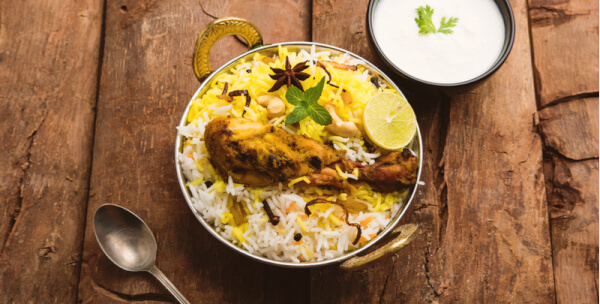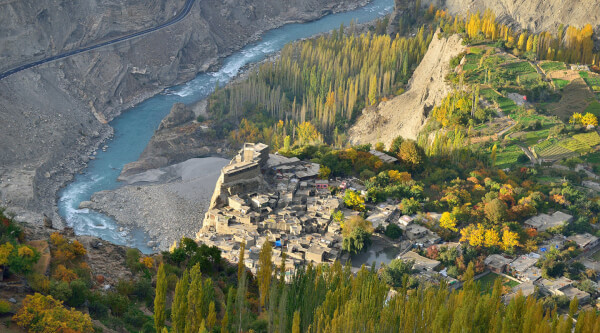Cost of living in Pakistan: Your guide
As Pakistani cities quickly evolve into some of the most cosmopolitan destinations in the world, it’s no surprise that more and more expats are moving to the...

One important decision, if you’re moving to Pakistan with family, is how to get the best possible education for your children. The Pakistani education system has similarities in structure to that used in Britain, with free education offered to all children from the ages three to 16. However, levels of enrolment vary wildly, with some 98% of children in Islamabad attending school, compared to very sparse attendance in some rural areas, especially among girls.
Pakistan’s education system is full of these contrasts, with extremely high school dropout rates in some places, compared with impressively high levels of English being spoken (some 49% of people), and relatively large numbers of university graduates. As an expat you’ll have the choice to enrol your child in a state school, a local private school or an international school which might teach in English and use a syllabus based on the international baccalaureate.
If you’re considering your options, you can learn more about the standard of education in Pakistan, with the information on the Federal Ministry of Education website, or the ‘report cards’ produced by ASER Pakistan, which gives a fascinating insight into the levels of attainment and attendance at schools throughout the country.
Schooling is an important consideration, so whether you’ve already got your Pakistani work visa and have your move fully planned, or are just starting to think about life overseas, it helps to know a little about the education options in Pakistan.
Here is a quick guide to get you started.
Pre-school is offered from age three, in Pakistan, with primary education starting at age five or six. After primary school, children move onto middle school and then secondary school, which is split into an intermediate programme to age 16, and an optional higher secondary programme to age 18.
The educational programmes offered are decided at a provincial level, with some federal support and coordination. In general, dropout rates are high, especially in rural areas, where large numbers of children are unable to complete even elementary education. The federal government is aware of these issues, and has policies in place to encourage students to remain in education. A large programme in 2009 clarified and reset the goals of the Pakistani education system, and reviews and reforms happen frequently. Nonetheless, over a quarter of the children aged six to 16 in Pakistan who are enrolled in schooling, attend private schools instead of sticking with the state system.
|---|---|
| Early Childhood Education (Pre-school) | Optional for ages three to six.Where available, early childhood education is provided free |
| Elementary school (Primary School) | Age six to 10 for all children.Education at primary level is free |
| Middle School | Offered for children aged 11 - 13.Free of charge |
| Intermediate and higher secondary education (Secondary School) | Age 14 - 18, split into two levels of attainment. Intermediate secondary education ends age 16, when students may choose to stay in school for higher secondary education. |
Pre-school in Pakistan is organised locally, often in facilities attached to existing elementary schools. Places are theoretically available for children aged between three and five, but they may be oversubscribed, or otherwise unavailable depending on the location.
You can find a list of all the schools at different levels in your area of Pakistan on the local government website. For example, if you’re in Lahore, the Punjab state government site contains contact details for all local schools.
If you struggle to find a pre-school that fits your needs, there are many private and international schools, mainly in the cities, which might cater to your needs. In fact, up to 30% of pre-school enrollments in Pakistan are with private institutions. Pre-kindergarten education is offered from two years old in some international schools.
From the age of six children can attend primary school in Pakistan. This stage of schooling is provided free of charge.
Primary school lasts for five grades, and the curriculum is broad, covering basic skills, physical education and language. The exact curriculum is decided by the region and the school itself, although Urdu and Islamic Studies are usually featured in all schools, as well as academic disciplines. Some regions of Pakistan teach in different languages such as Punjabi and Pashto, and there are institutes in the cities which offer education in most major world languages (although these will come at a cost).
Middle school begins when students are around 10 years old, and lasts for three years, from Grade six to eight. Middle school is free of charge in Pakistan, and covers both compulsory and elective subjects. In many cases schooling from middle school upwards is single sex.
The curriculum at this stage remains broad, covering maths, science and English language, social studies, art and PE. In some cases computer studies is also taught, but the exact timetable is decided by the school itself.
Secondary school is split into two programmes with examinations at the end of each one. The standard state education runs to the age of 16, at which point successful students are given a certificate of secondary education after passing nationally recognised exams. It’s possible to then stay in school to age 18 and earn a certificate of higher secondary education, which may be on a programme specifically designed to prepare you for a certain type of university study or career. By this level, English studies are mandatory, alongside learning Urdu and Islamic studies.
Technical and vocational education is also available in some areas, and is arranged by local provincial authorities.
The school year in the Pakistani state system typically runs April through to March, although the exact dates vary slightly according to the specific school preferences. The local provincial authorities and the individual schools decide on their calendar and daily timetable then inform parents.
It’s worth noting that this calendar applies to state schools only, in private and international schools the western standard calendar, with a long summer break and several weeks vacation at Christmas, is far more likely to be adopted.
Theoretically, education in the Pakistani state system is free, although there are costs such as transport and materials which may have to be met by parents. If you don’t choose the state system and decide to find a private international school, the costs are much higher. Despite this, private education is popular in Pakistan, partly because of the variable standards within the state system.
Pakistan has a number of international schools, mainly in the major cities, teaching in English and other major world languages. They often use either the International Baccalaureate syllabus or a variant of the United States standard curriculum. International schools are generally of a high standard, and therefore typically competitive, with testing and interviews to secure admission. You can expect the fees to vary widely depending on the specific school and the programme they offer. Fees of anything from USD 10,000 to USD 25,000 a year aren’t uncommon, with secondary education costing far more than early years. Many international schools also have significant registrations fees, which must be paid upon being offered a place.
Whichever route you decide is best for your family, there will be costs involved, and you don’t want to pay any more than you have to. If you’re funding your child’s education from your account back home, consider using Wise to get the real exchange rate and cut out expensive international bank transfer fees.
*Please see terms of use and product availability for your region or visit Wise fees and pricing for the most up to date pricing and fee information.
This publication is provided for general information purposes and does not constitute legal, tax or other professional advice from Wise Payments Limited or its subsidiaries and its affiliates, and it is not intended as a substitute for obtaining advice from a financial advisor or any other professional.
We make no representations, warranties or guarantees, whether expressed or implied, that the content in the publication is accurate, complete or up to date.

As Pakistani cities quickly evolve into some of the most cosmopolitan destinations in the world, it’s no surprise that more and more expats are moving to the...

With nearly 1.2 million British Pakistani people living in the UK and the strong cultural and historical link between the two countries, it is no surprise...